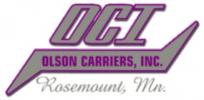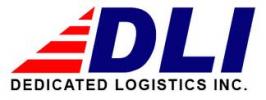Buying into safety: One fleet’s view
Submitted by Bill on
“Our first job is to protect our team,” says Baylor Trucking’s president.
Jan 4, 2017 by Sean Kilcarr | Fleet Owner
Cari Baylor, president of Baylor Trucking, is a big believer in the benefits of high-end safety technologies, despite the often high-end price tag that comes with them.
Baylor noted that her company purchased 35 Kenworth T680 tractors in 2015 equipped with the BlindSpotter Side Object Detection and the Wingman Advanced collision avoidance array developed by Bendix Commercial Vehicle Systems, and then another 35 last year also equipped with the BlindSpotter technology, but with the addition of the newer Wingman Fusion package.
The upgraded Wingman Fusion package integrates a camera that cross-checks information with the system’s built-in radar locus to improve rear-end collision mitigation, speeding alerts, lane departure warning, and to allow for autonomous braking when detecting on stationary vehicles.
But such technologies don’t come cheap, Baylor told Fleet Owner in an interview.
For example, the cost of the entire package noted above per truck is over $8,000, she said, while just replacing just the forward radar system alone on just one truck costs $1,940.
“There’s absolutely a cost to it,” she explained. “But how can you measure that cost against a crash? I know the statistics say the passenger vehicle is at fault in most [truck-car] crashes, but does that matter when people’s lives are on the line?”
Baylor’s perspective is that trucking is a much higher-risk industry today than when her grandfather founded the company back in 1946. “We have three principles: Be safe, be legal, and be on time – and safety comes first,” she stressed. “Our first job is to protect our team; that’s the right thing to do. We will figure out a way to pay for it – we can talk higher utilization, lower insurance premiums, etc. – but that’s really not the way to make a decision. Who can’t make an $8,800 commitment to safety?”
Case in point: While the number of injury crashes involving large trucks or buses decreased steadily from 2004 to 2009 – dropping from 95,000 to 60,000 over that five year span, a decline of 37%, according to data compiled by the Federal Motor Carrier Safety Administration (FMCSA) – it was followed by a 55% increase in injuries between 2009 and 2014.
FMCSA’s data also indicated the number of large trucks involved in injury crashes increased by 21%, from 73,000 to 88,000, between 2013 and 2014 alone.
That’s why, to Baylor’s mind, advanced safety technologies like the Wingman Fusion system is a “win-win” for both truck drivers and motorists alike because it protects them both equally if a crash occurs.
“When you are in this business, you know there is big difference when a crash occurs at 60 mph versus 10 mph,” she pointed out. In the aftermath the low-speed crash, “you still get to walk your kid to school,” Baylor noted; in the aftermath of the other, you don’t.
She also noted that Baylor’s drivers recognize the value such safety technology can provide.
Baylor related her conversation with a new company driver, one who joined Baylor with a pregnant wife who was issued a T680 equipped with the Wingman Fusion package.
“He spent two hours training on the new truck and after four months on the road told me the technology makes him feel better – that it gives him confidence that he’ll make it back home safe to his family,” she said.
But Baylor also stressed that top-of-the-line safety technology must be matched with top-of-the-line driving skills to be truly effective.
“We hire the safest drivers we can hire and support them with the safest professional team we can develop, so it only makes sense to put them in the safest trucks that we can buy,” she explained.
It’s also the explanation behind a recent pay raise initiated by the Milan, IN-based carrier this week – with company drivers who exceed 2,500 miles in a week getting an extra one cent per practical mile for all their miles driven that week, eliminating the need for quarterly and monthly bonuses. Drivers get paid extra for delivering to congested areas as well, the company noted
Baylor added that base pay increase is for new as well as existing company drivers with all levels of experience and builds upon a pay hike for military veterans rolled out last year.
“Baylor drivers work hard, they care about safety and service,” she said. “More than anything, we want our drivers to return home safely, and we want to make sure that all the families traveling out there are driving next to the safest trucks on the road.”
More Recent News Stories








